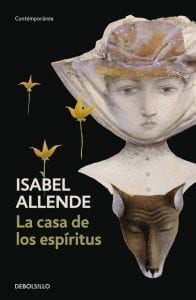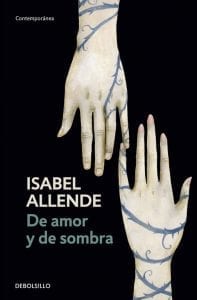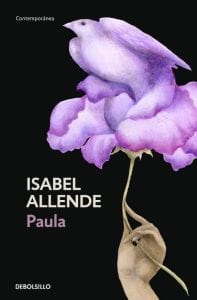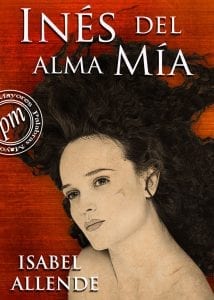
Considered as one of the great writers of the Latin American world, Isabel Allende (Lima, August 2, 1942) lived much of her childhood in a troubled Chile from which she was forced to escape in 1973. It was then that politics, feminism or magical realism became recurring themes about those that weave a bibliography that includes up to 65 million copies sold, making Allende the most widely read living author in Spanish. The biography and best books of Isabel Allende they confirm it.
Biography of Isabel Allende

Photography: Primicias24
Write what should not be forgotten
Of Spanish descent, specifically Basque, Isabel Allende was born in the Peruvian Lima, a city to which her father was transferred on the occasion of a job at the Chilean Embassy. After the separation of her parents when she was barely 3 years old, her mother returned with her children to Chile to link up with other stages living in Lebanon or Bolivi, until Allende's subsequent return to Chile in 1959.
She married her first husband, Miguel Frías, in 1963, the same year that her daughter Paula was born. Their second son, Nicolás, was born in 1967. During the years that Allende lived in Chile worked at the Food and Agriculture Organization of the United Nations (FAO), on two Chilean television channels, as a writer of children's stories and even a theater scriptwriter. In fact, his last work, The Seven Mirrors, premiered shortly before Allende and his family left Chile in 1973 after Pinochet's coup. In 1988, after divorcing Miguel Frías as a result of the many trips that had begun on the occasion of the success of his first published books (La casa de los espíritus or De amor y de sombra), Allende remarried, this time with lawyer Willie Gordon , in San Francisco, obtaining American citizenship in 2003 after fifteen years living in the North American country.
Allende's life has been marked by instability, travel and episodes as dramatic as the death of his daughter Paula, who died at the age of 28 in a clinic in Madrid due to a porphyria that led to a coma. From this hard blow, one of her most sentimental books was born, Paula, which emerged from a letter written by the author to her daughter. An example that confirms Allende's tendency to create stories from his own experiences that are later processed by fiction. The result is a universe marked by the magical realism so inherent to the Latin American boom, but also a post-boom characterized by a more emphatic writing and a return to realism.
Throughout her career, Isabel Allende has sold up to 65 million books translated into 35 different languages and won awards such as the Chilean National Literature Prize in 2010 or the Hans Christian Andersen in 2011.
Best books by Isabel Allende
The House of the Spirits

Allende's first (and most famous) work was born from a letter that the writer wrote for her grandfather, 99, from Venezuela in 1981. The material that later became a novel deals with the betrayals and secrets of four generations of the Trueba, a family from post-colonial Chile. Become a whole bestseller after publication in 1982, The House of the Spirits it has much of that magical realism so characteristic in which old ghosts intermingle with the various situations born of the social and political transformations in Chile. The novel was adapted to the cinema in 1994 with Jeremy Irons, Glenn Close and Meryl Streep as main stars.
Of Love and Shadows

In the middle of the darkness, specifically the one that invokes a historical episode such as the dictatorship of Chile, forbidden love becomes something like a captive flower. The premise of Of Love and Shadows made Allende's second novel a bestseller after it was published in 1984, especially thanks to the hypnotism of the romance between Irene and Francisco, a story that the author herself kept with her during her years as an emigrant in order to give the world a story happier than the setting and time to which it belongs. The novel was adapted to the cinema in 1994 with Antonio and Jennifer Connelly as protagonists.
Eva Luna

Scheherazade, that young woman who once told stories to a sadistic caliph throughout a thousand and one nights had been claiming a Latin American sister for centuries. Allende was in charge of providing Eva Luna and his eventful story through the jungle, peoples and conflicts of South America of the voice necessary to turn his 1987 book into one of his most forceful. In fact, the novel itself spawned a second part called Tales of Eva Luna which is the best excuse to immerse yourself in Allende's short and exuberant stories, which delve into conflicts that range from historical memory to family betrayals.
Paula

According to Allende, of all the books he has written, Paula It is the most reluctant cause around the world. Conceived as an epistle born from the 180 letters that the author wrote during the coma in which her daughter was plunged due to porphyria Until her death in December 199,2 she made this book a separate point in the author's bibliography. A heartbreaking and intimate story in which a mother with fear of losing her daughter relives her life and works clinging to a minimum halo of hope. Certainly one of the best books of Isabel Allende.
Ines of my soul

Isabel Allende has always explored history and all its nuances as a way to create the perfect foundations for her works. A good example was this book published in 2006 that recounts the misfortunes of whiche was the first Spanish woman to arrive in Chile: Ines, an Extremaduran who follows in the footsteps of her beloved until she enrolls in some of the great historical episodes of South America such as the conquest of Chile or the fall of the Inca empire.
Would you like to read Ines of my soul?
What are, in your opinion, the best books by Isabel Allende?